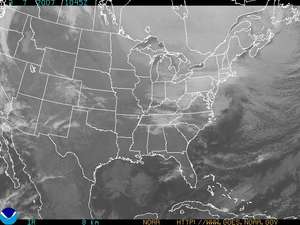

Moore Observatory is a research and advanced teaching facility of the University of Louisville. We occasionally offer tours for small classes, school groups, and the public on request, but due to limited staff and time it is not possible to do this on a regular basis. If you are interested, inquire by email to kielkopf at louisville dot edu. Also consider visiting the Louisville Astronomical Society's open house nights at their observatory in Curby, Indiana, and Urban Astronomy Center in nearby Tom Sawyer Park.
The University of Louisville Department of Physics and Astronomy operates instruments at its Moore Observatory site near Brownsboro, Kentucky, and companion telescopes at Mt. Kent near Toowoomba, Australia, and Mt. Lemmon near Tucson, Arizona.
Our 24-inch Ritchie Chretien (MORC) telescope is a research instrument used by faculty and graduate students involved in studies of exoplanets, optical properties of the atmosphere, and the development of imaging and spectroscopic technology.
A visitor's refracting telescope in the Star Dome offers a view of the Sun during the day, and colorful widefield views of the Moon, planets, and stars through an eyepiece or by color photography at night.
The unique Azari telescope in the Roll Roof specializes in following man-made satellites, near-Earth asteroids, and comets.
The 20-inch corrected Dall-Kirkham telescopes at Moore Observatory (CDK20N) and at Mt. Kent (CDK20S) are collaboratively operated by the University of Louisville and the University of Southern Queensland for both research and education. These telescopes provide research opportunities and course content for undergraduate and graduate students at the University of Louisville and the University of Southern Queensland.
Our 27-inch state of the art (CDK700) telescope in operation at Mt. Kent is currently following exoplanets that have been discovered by NASA's TESS satellite in the southern sky.
On Mt. Lemmon at the University of Arizon's Steward Observatory our Manner telescope is observing the northern sky for exoplanets too.
Other facilities are also available on Belknap Campus.
